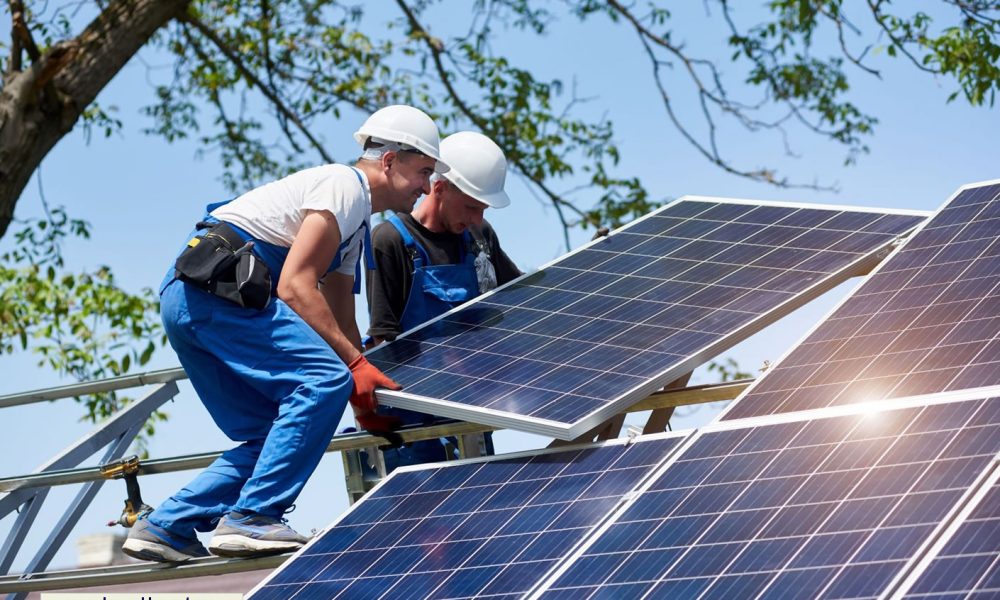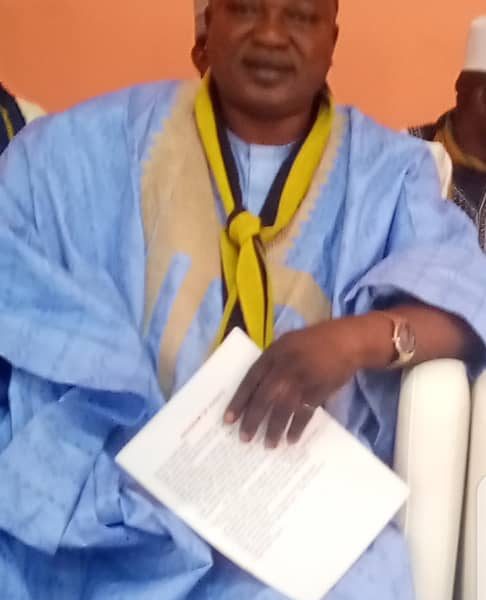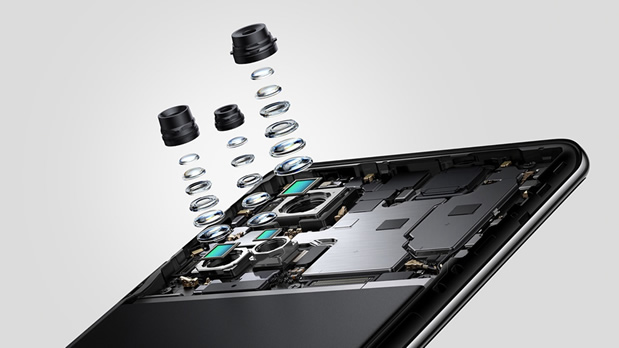Science and Technology
What this Radiologists revealed about the controversial 5G Technology..

A radiologist from University of Uyo Teaching Hospital, Dr Wilson Effiong said 5G is non-ionizing radiation, which means it lacks sufficient energy to break apart DNA and cause cellular damage, saying that 5G had more speed and capability. push({}); adsbygoogle || []).push({}); ,’
Effiong made this assertion as Electrical and electronic experts have called for adoption of 5G mobile technology for Nigeria not to be left out of the ongoing global technological industrialisation and development evolution.
Effiong said it was also an improvement of all other technologies , which Nigeria must adopt for growth.
He said that 5G does not cause COVID-19 stating that, “5G is non-ionizing radiation, which means it lacks sufficient energy to break apart DNA and cause cellular damage,’’
Nigerian Institute of Electrical and Electronic Engineers (NIEEE) made a 5G Health Symposium webinar on Saturday to clarify some myth about the 5G technology.
Speaking on controversies around 5G and radiation from antennas, they said that 5G mobile technology was faster and safer and used less oxidation and energy, making it safer than its predecessors.
Mr Bako Wakil, Director, Technical Standards and Network Integrity, Nigerian Communications Commission (NCC), said Nigeria had no 5G technology at the moment and stressed the need for policy formulation towards its adoption.
Wakil said that MTN was given the opportunity to try the capability of the network in two cities in 2019 after which the 5G was “decommissioned“.
He explained that 5G was safer than its predecessors because it has far less radiation than that of 1G, 2G, 3G and 4G networks.
Wakil said that NCC was measuring exposure limits from mobile frequencies in line with global standards, to ensure safety stating that, as safe as water was for human use, its abuse could cause harm.
“In NCC we have been measuring and assessing base station radiations. All equipment coming into Nigeria are allowed after they are certified.
“Radiation coming from mobile base stations or mobile sets are not harmful. We should as a country have a policy, 5G is going to transform our people and country.
“We have been carrying out measurements of 5G radiations at NCC and it is safe. Although it is safe, it is important to adopt safety measures, even water, if not properly used can harm you.
“NCC has feedback mechanisms where we go round the country in our consumer outreach programmes as well as our town hall meetings, where we ensure stakeholders and consumers meet to address all consumer needs and complaints,’’ he said.
He said that by 2025 over a billion machines were expected to be connected globally carrying out complex operations like surgeries, self-driving cars, etc which Nigeria must key into.
While taking questions from participants, Wakil said that radiation from microwave ovens was far higher than that required by the 5G mobile network.
He noted that microwave ovens needed more than 10 times the energy frequency needed by 5G mobile technology to function, thereby making 5G much safer.
Earlier, Prince Akeem Adeyemi, Chairman House of Representative Committee on Communications, while declaring the webinar open, said that there was currently no approval for 5G in Nigeria.
Mr Uwazie Kingsley, Technical Director, Huawei Technical Support Centre, Nigeria, while making his presentation, said that 5G had the key to the fourth industrial revolution driven by efficient effective machines operations.
Kingsley said that the COVID-19 pandemic has revealed the need for working remotely, adding that 5G was the platform needed for other industries to inter-twine with telecommunication.
Citing drones as example, Kingsley said that the device was limited because it uses Wifi adding that, 5G would remove the current limitation of heights and speed to drones operations.
“5G is going to remove those limitations of height and speed, it will mean that the drones can no longer be brought down and the Police can use it for surveillance,’’ he said.
He said that Nigeria cannot afford to be left behind as researches have begun into 6G, which is expected to use holograms.
Dr Abayomi Afe, Public Health Physician, a specialist in infectious diseases, a researcher and Consultant, said that disease needed an environment, agent and a human host to enable it to thrive.
Afe who spoke on the topic, “Health and Radiation Amidst COVID-19 Pandemic“ said COVID-19 was a new pattern of the respiratory disease, which is unknown.
“The only way to know anyone who has the virus is through laboratory test which includes collection of swaps from the nose and deep down in the throat,” he said.
He said that the country was making progress in its effort to flatten the COVID-19 curve, while listing various health guidelines on curbing COVID-19 and how to stay safe.
“As at last week a new symptom was discovered in children that is why you must seek medical help for all health issues and not self-medication,” Afe said.
Author Profile

- Prince Abdulrahman Obaje is a Media, Information and Computer Technology Consultant. A quintessential Journalist, online marketer, social media strategist, Mathematician and Computer Scientist is based in Abuja, Nigeria. He is the Founder and the Publisher of The Informavores!. You can reach me on +234 805 939 5252 or send i-witness report directly to me on news@informavores.com.ng.
Latest entries
 ArticleApril 24, 2024Preventing Fire Outbreak in Solar Power System Installation – Engr Ohida
ArticleApril 24, 2024Preventing Fire Outbreak in Solar Power System Installation – Engr Ohida PoliticsApril 23, 2024Alleged 80.2 Billion Fraud: EFCC May Loose Case Against Yahaya Bello – Ambassador Danjuma
PoliticsApril 23, 2024Alleged 80.2 Billion Fraud: EFCC May Loose Case Against Yahaya Bello – Ambassador Danjuma NewsApril 11, 2024Eid-El-Fitr: ICDA North Central Coordinator Urges Muslim Faithfuls To Abide By Ramadan Lessons
NewsApril 11, 2024Eid-El-Fitr: ICDA North Central Coordinator Urges Muslim Faithfuls To Abide By Ramadan Lessons NewsMarch 20, 2024Investigative Journalists Group, NGIJ Hails Aderinokun on Appointment as Head of Media at Access Corp
NewsMarch 20, 2024Investigative Journalists Group, NGIJ Hails Aderinokun on Appointment as Head of Media at Access Corp
ICT
Product Review: OPPO Reno11 smartphone

On January 11th, 2024, Folashade Omonijo, Marketing Manager, OPPO NG said OPPO is the world’s leading smart device brand, announcing the global availability of its OPPO Reno11 smartphone with the gracing presence of popular celebrities and media partners at it’s launch event.
adsbygoogle || []).push({}); adsbygoogle || []).push({}); Fusing eye-catching elegance with an Ultra-Clear Portrait Camera System, spearheaded by a 50MP Main Camera with OIS, and sporting dual stereo speakers, Reno11 unlocks class-leading entertainment, day-long battery life and best-in-class charging speeds.
OPPO Reno11 smartphone Launches Globally with Sleek Styling, Superb Experiences and an Ultra-Clear Portrait Camera System
She further said that, “Reno11 shines with superb experiences, thin and light design, and excellent entertainment credentials. Its Ultra-Clear Portrait Camera System turns it into a creative powerhouse and the long-lasting, fast-charging battery cements Reno11’s winning balance of style and substance.”
Informavores! finds below, some of the features that makes the smart phone to stand-out as it launches Globally with Sleek Styling, Superb Experiences and an Ultra-Clear Portrait Camera System:
Elevated Style meets Brilliant Visuals and Stereo Sound
Reno11 flows effortlessly into your life with its gorgeous 3D Curved Design and a slim and lightweight body. At just 7.99mm1 thin, it feels sleek, and weighing 182g, is comfortable to hold, even after long bouts of streaming or reading.
Looking striking with its Shimmering Silk Design and OPPO Glow technique, OPPO’s honed its design process to achieve a beautifully textured look with a smooth feel. Available in two colours, Wave Green and Rock Grey, both are inspired by nature and catch light exquisitely.
In Wave Green, Reno11 conjures images of green sea waves under a clear sky with its Shimmering Silk Design. To achieve this elegant style, OPPO pioneered a new technique of pattern transfer from natural fabric, adding an organic authenticity to Reno11’s aesthetic.
For more subdued style, Reno11 in Rock Grey reveals layers of bright and soft silver-grey glitter when held up to the light. Manufactured with the exclusive OPPO Glow process, tiny sparkling crystals are etched at the microscopic level to create a finish that not only sparkles, but also appears soft and smooth.

Embracing contrast, Reno11’s Sunshine Ring camera system rises from its rich-looking back, teasing the capable Ultra-Clear Portrait Camera System within.
When using Reno11, its 120Hz 3D curved screen pulls focus with its large 6.7” size and punchy display technology. Framed by an ultra-slim border for an almost all-screen experience, its 93% screen-to-body ratio is both supremely immersive and class-leading.
This immersion continues to Reno11’s brilliant 10-bit AMOLED screen, showcasing over 1 billion colours for natural-looking gradients and more true-to-life visuals. HDR10+ certification conjures enchanting highlights and atmospheric shadows, and with dual stereo speakers, movies and shows sound as good as they look.
Crank up your favourite tunes or give quiet tracks a boost with Reno11’s Ultra Volume Mode, with 300% volume from the dual stereo loudspeakers. Reno11 also boosts in-call volume by up to 200% for easy-to-hear conversations
Strike a Pose with Portrait-Perfect Photos And Enjoy studio-grade portrait photography with OPPO Reno1
With OPPO’s Ultra-Clear Portrait Camera System, Reno11 captures studio-grade portrait photography.

Get up close to subjects with a 32MP telephoto camera matched with a 47mm equivalent, 2x telephoto zoom which captures with a classical point of view for portraits, similar to the perspective of a human eye. The Sony IMX709 sensor powering this 2x experience doesn’t just capture crisp, detailed photos, it also features an RGBW pixel arrangement for a 60% increase in photosensitivity and 35% less noise than comparable traditional sensors.
With a powerful 50MP Ultra-Clear Main Camera with OIS, a fast f/1.8 lens and Sony’s new LYT600 sensor, expect an impressive, all-purpose camera you can lean on. And for expansive landscapes, Reno11’s ultra-wide 8MP camera covers an all-seeing 112º field of view
Reno11’s camera takes portrait imaging beyond hardware. Having teamed up with portrait photography experts from around the world, OPPO’s Portrait Expert Engine powers Reno11’s portrait photography. This engine results in a four-part process to capture tasteful, beautiful portrait photos, starting with Facial Recognition + Subject/Scene Separation, followed by Skin Tone Protection, then Clarity and Facial Enhancement, and finally Portrait and Environment Merging.

Reno11 combines this advanced portrait algorithm with its pro-grade Portrait Mode. This captures natural-looking portraits at either 1x or 2x zoom with incredible subject, object, and edge separation. In addition, advanced flattering safeguards individuality, while adjustable bokeh empowers the photographer to adjust focus more precisely.
More than a versatile stills camera, Reno11 also captures 4K ultra-clear video from both the main camera and 32MP selfie camera, so you can record, vlog, post and express yourself without sacrificing on quality
ColorOS 14 for Effortless Work and Play
So much more than just stylish, the Reno11 ColorOS 14 experience is exceptional, fusing beauty, security, productivity, reliability, and longevity.
With File Dock, easily save images, text or files for quick drag-and-drop access across your apps. Smart Touch captures images, text, and even text within images from a screenshot with ease. Finally, Smart Image Matting easily, quickly cuts out up to six subjects from a photo and saves the image in File Dock, so you can turn it into a sticker or share it directly with another app.

Behind the scenes, ColorOS 14’s next-generation Trinity Engine ensures fast and smooth performance. ROM Vitalisation can save up to 19GB of extra space from a total 256GB storage2 by compressing unused data and removing duplicated files. RAM Vitalisation can keep up to 28 apps running in the background for 72 hours2. While CPU Vitalisation learns usage habits and optimises processes for a smoother, longer-lasting experience2. OPPO’s 48-Month Fluency Protection also means Reno11 is optimised for today, tomorrow, and years to come
Flagship-level Connectivity and an End to Battery Anxiety
Reno11 is powered by a MediaTek Dimensity 7050 chipset, delivering 6nm computing that makes confident multi-tasking, gaming and demanding tasks like 4K video capture possible.
Up to 12GB RAM and an additional 12GB available with RAM Expansion means Reno11 can work across multiple apps and games without background apps being closed. And with 128GB or 256GB storage and storage expansion of up to 2TB via microSD card, enjoy a library of offline movies and games, making Reno11 a perfect travel companion.
For stable signal you can rely on, whether browsing, talking or texting, OPPO’s self-developed network optimisation engine, LinkBoost, achieves up to 100% higher signal transmission and 44% stronger reception than competitor devices2. LinkBoost combines AI network selection and a 360-degree surround antenna design for the most stable signal possible with minimum downtime.

For Reno11 users in India, Indonesia, Malaysia, Thailand, Vietnam and Mexico, OPPO has taken LinkBoost even further, tuning the technology to get you back online up to 87% faster than competing devices after leaving an elevator, dropping signal in a fast-moving vehicle, a crowded environment or when underground.
Go the distance with Reno11’s long-lasting, large 5000mAh battery, confidently getting you through a full, connected day, and with OPPO’s Battery Health Engine, look forward to four years of day-long use2. When you do need to power up, unlock 67W SUPERVOOCTM Flash Charging4 using the supplied charger for a 33% top-up in 10 minutes2, and a 100% charge in just 45 minutes.
So, OPPO is a leading global smart device brand. Since the launch of its first mobile phone – Smiley Face – in 2008, OPPO has been in relentless pursuit of the perfect synergy of aesthetic satisfaction and innovative technology. Today, OPPO provides a wide range of smart devices spearheaded by the Find and Reno series.
Beyond devices, OPPO also provides its users with ColorOS operating system and internet services such as OPPO Cloud and OPPO+. OPPO has footprints in more than 60 countries and regions, with more than 40,000 employees dedicated to creating a better life for customers around the world
Author Profile

- Prince Abdulrahman Obaje is a Media, Information and Computer Technology Consultant. A quintessential Journalist, online marketer, social media strategist, Mathematician and Computer Scientist is based in Abuja, Nigeria. He is the Founder and the Publisher of The Informavores!. You can reach me on +234 805 939 5252 or send i-witness report directly to me on news@informavores.com.ng.
Latest entries
 ArticleApril 24, 2024Preventing Fire Outbreak in Solar Power System Installation – Engr Ohida
ArticleApril 24, 2024Preventing Fire Outbreak in Solar Power System Installation – Engr Ohida PoliticsApril 23, 2024Alleged 80.2 Billion Fraud: EFCC May Loose Case Against Yahaya Bello – Ambassador Danjuma
PoliticsApril 23, 2024Alleged 80.2 Billion Fraud: EFCC May Loose Case Against Yahaya Bello – Ambassador Danjuma NewsApril 11, 2024Eid-El-Fitr: ICDA North Central Coordinator Urges Muslim Faithfuls To Abide By Ramadan Lessons
NewsApril 11, 2024Eid-El-Fitr: ICDA North Central Coordinator Urges Muslim Faithfuls To Abide By Ramadan Lessons NewsMarch 20, 2024Investigative Journalists Group, NGIJ Hails Aderinokun on Appointment as Head of Media at Access Corp
NewsMarch 20, 2024Investigative Journalists Group, NGIJ Hails Aderinokun on Appointment as Head of Media at Access Corp
News
Renewable Energy Has Enormous Potential To Grow The Power Sector – Expert

An energy experts and the President REEEA-A, Prof. Magnus Onuoha, say that renewable energy has enormous potential to grow the power sector, hence, promoting national development.
He reiterated this in Abuja on Tuesday 1st August, 2023 at the inauguration of the newly elected members of the Renewable Energy and Energy Efficiency Associations Alliance ( REEEA-A)/ a one-day media training. adsbygoogle || []).push({}); adsbygoogle || []).push({});
Prof. Onuoha, further said that renewable energy and energy efficiency had so much potential for women empowerment, youth development and national growth.
“But we barely have a cadre of local indigenous developers as most of the products and finance were not accessible to Nigerian developers.
“Here in Nigeria, the fuel subsidy removal, the Electricity Act recently signed into law, rising cost of energy dominant systems and measures, have showed that it is time for a critical rapprochement and behavioural change toward renewable energy and energy efficiency.
“Not just as a policy document but as an implementable system for domestic, rural, urban, commercial and industrial development, ‘’ he said.
Onuoha said that in 2019, seven associations came together and saw the need for a common voice in the renewable energy and energy efficient sector.
He listed the associations as Association of Energy Engineers – AEE, Council for Renewable Energy Nigeria – CREN, Renewable Energy Association of Nigeria –REAN, Renewable Energy Associations Society of Nigeria – RAESON.
Others he said were the Sustainable Energy Practitioners Association of Nigeria, – SEPAN Women in Renewable Energy Association – WIRE-A
According to him, with the generous support of development partners the associations had remained strong.
“And after three years of trying to get everyone on the same page, representing the industry and associations within the industry and at the same time sensitising government on the roles Nigerian developers have to play.
“We are taking it not just one step further but reinforcing the foundation that has been laid, and building multiple stories of vertical integrations that will change the industry, ”he said.
Onuoha said that there was the need to develop the capacity of developers, installers, advocates and policy formulators. If we do not have capacity, we shall be at the mercy of others.
He said that without the requisite capacity, indigenous expertise could not be built to sustain national growth.
“With enough capacity, we can create green jobs, create employment, create entrepreneurs and evolve women and youth empowerment.
“As the President of REEEA-A, I, alongside my colleagues on the Governing Council pledge to work assiduously to ensure that renewable energy and energy efficiency become the go-to technologies to power Nigeria, ”he said.
On her part, Mrs Joy Ogaji, the Executive Secretary, Association of Power Generation Companies (APGC), said that the introduction of consolidated power framework that includes cleaner renewable energy sources in Nigeria’s energy mix would facilitate the development of renewable energy solutions.
Ogaji said that there was the need to introduce cut–edge technology to improve power distribution and monitoring and also encourage private sector investment.
She said that the proposed reforms are expected to improve the competitiveness, financial viability and service delivery in the sector.
According to her, the payment/liquidity and security of supply as major challenges in the region should be looked into to ensure that the region realise regional power integration to its fullest potential.
“There is the need to put in place several measures to improve confidence in the regional power market such as
”Improving sector creditworthiness, through a well-designed and securitisation model to encourage the provision of guarantees.
Ogaji said that for West Africa to ensure energy security for her growing economies, developing a strategic framework through regional integration coordinated and bench marked must be promoted when developing respective energy sectors.
“There is also urgent need to encourage move towards willing seller/willing buyer contracts to effectively balance risk and reward in the sector, ‘she said.
Author Profile

- Prince Abdulrahman Obaje is a Media, Information and Computer Technology Consultant. A quintessential Journalist, online marketer, social media strategist, Mathematician and Computer Scientist is based in Abuja, Nigeria. He is the Founder and the Publisher of The Informavores!. You can reach me on +234 805 939 5252 or send i-witness report directly to me on news@informavores.com.ng.
Latest entries
 ArticleApril 24, 2024Preventing Fire Outbreak in Solar Power System Installation – Engr Ohida
ArticleApril 24, 2024Preventing Fire Outbreak in Solar Power System Installation – Engr Ohida PoliticsApril 23, 2024Alleged 80.2 Billion Fraud: EFCC May Loose Case Against Yahaya Bello – Ambassador Danjuma
PoliticsApril 23, 2024Alleged 80.2 Billion Fraud: EFCC May Loose Case Against Yahaya Bello – Ambassador Danjuma NewsApril 11, 2024Eid-El-Fitr: ICDA North Central Coordinator Urges Muslim Faithfuls To Abide By Ramadan Lessons
NewsApril 11, 2024Eid-El-Fitr: ICDA North Central Coordinator Urges Muslim Faithfuls To Abide By Ramadan Lessons NewsMarch 20, 2024Investigative Journalists Group, NGIJ Hails Aderinokun on Appointment as Head of Media at Access Corp
NewsMarch 20, 2024Investigative Journalists Group, NGIJ Hails Aderinokun on Appointment as Head of Media at Access Corp
Science and Technology
Meet The Youngest Nigerian Certified AWS Developer Associate In Africa

A 13-yr-old Computer Programmer Joshua Agboola from Nigeria has emerged the youngest Certified Amazon Web Services Developer Associate in Africa .
The News Agency of Nigeria (NAN) reports that Agboola achieved the feat after a grueling two-hour examination that tested his skills and knowledge in deploying, troubleshooting, and development on the AWS cloud platform. adsbygoogle || []).push({}); adsbygoogle || []).push({});
Agboola, in an interview with NAN in Lagos on Sunday 30th July, 2023 said he was inspired to achieve the feat because of his outstanding performance in his AWS Certified Cloud Practitioner examination earlier in the year.
He said that as a result, he was encouraged by his father to take his pursuit of a cloud career further by sitting for the next level certification.
Agboola said that though he had developed an interest in DevOps, the popular progression was to go for the Solutions Architect Associate certification, and this was what he did.
“I was initially preparing for the Solutions Architect Associate certification which is the next certification most people take in their AWS cloud journey, but had a change of mind for a tougher developer associate certification due to encouragement from an older friend programmer.
‘’The light bulb went up in my head, and I began studying the next day.
‘’The possibility of clinching the title of the youngest Developer Associate in the world, which is an equivalent of a world record in the cloud space, also became a strong motivation for me,’’ he said.
According to him, I prepared for the test by studying for about two to five hours daily for about six weeks.
Agboola said the first two weeks of study was to appreciate the core concepts of the course and also gain knowledge of all the topics that could come up in the exam.
According to him, this turned part of study time into revision time and had to cover the content of the Solutions Architect course earlier which gladden me because my practicing has paid off.
The 13-year-old internet sensation said his achievement in the cloud space had gotten noticed, saying “A tech. company in Lagos has already offered to provide me with further technical mentorship”.
He dedicated his achievement to young people who wish to build a career in technology while encouraging the young ones to go for their dreams.
According to Amazon, getting certified as an AWS Developer Associate showcases knowledge and understanding of core AWS services, and proficiency in developing, deploying, and debugging cloud-based applications.
Amazon said the organizations with AWS certified developers have the assurance of having the right talent to give them a competitive advantage and ensure stakeholders and customers satisfaction.
“Preparing for and attaining this certification gives certified individuals more confidence and credibility,” it added.
NAN reports that earlier, Agboola had taken and passed the AWS Cloud Practitioner certification becoming the youngest in Africa to do so.
Likewise, on July 17, 2023, he sat for the AWS Solutions Architect Associate examination and passed with flying colours which is another first for Africa.
Cloud services are infrastructure, platforms, or software that are hosted by third-party providers and made available to users through the internet.
Author Profile

- Prince Abdulrahman Obaje is a Media, Information and Computer Technology Consultant. A quintessential Journalist, online marketer, social media strategist, Mathematician and Computer Scientist is based in Abuja, Nigeria. He is the Founder and the Publisher of The Informavores!. You can reach me on +234 805 939 5252 or send i-witness report directly to me on news@informavores.com.ng.
Latest entries
 ArticleApril 24, 2024Preventing Fire Outbreak in Solar Power System Installation – Engr Ohida
ArticleApril 24, 2024Preventing Fire Outbreak in Solar Power System Installation – Engr Ohida PoliticsApril 23, 2024Alleged 80.2 Billion Fraud: EFCC May Loose Case Against Yahaya Bello – Ambassador Danjuma
PoliticsApril 23, 2024Alleged 80.2 Billion Fraud: EFCC May Loose Case Against Yahaya Bello – Ambassador Danjuma NewsApril 11, 2024Eid-El-Fitr: ICDA North Central Coordinator Urges Muslim Faithfuls To Abide By Ramadan Lessons
NewsApril 11, 2024Eid-El-Fitr: ICDA North Central Coordinator Urges Muslim Faithfuls To Abide By Ramadan Lessons NewsMarch 20, 2024Investigative Journalists Group, NGIJ Hails Aderinokun on Appointment as Head of Media at Access Corp
NewsMarch 20, 2024Investigative Journalists Group, NGIJ Hails Aderinokun on Appointment as Head of Media at Access Corp
